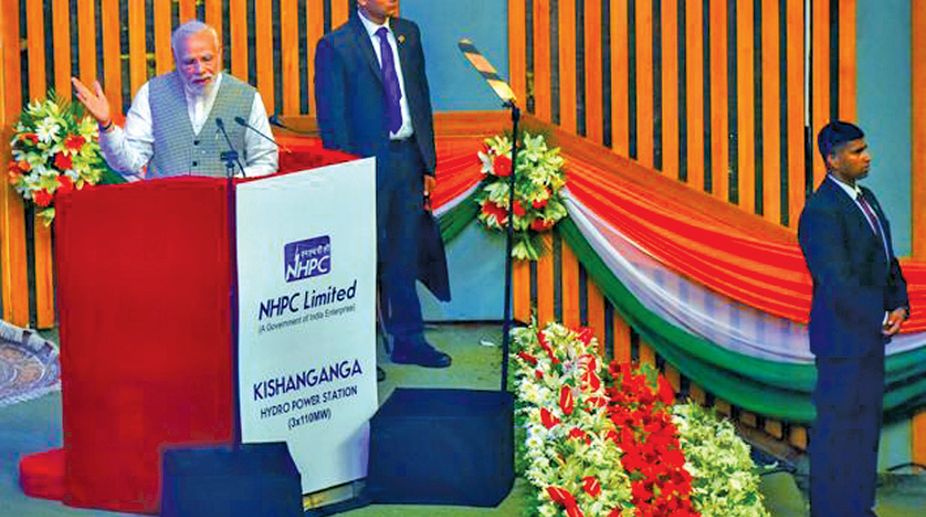2036 Olympics and Paralympics: India formally submits Letter of Intent to IOC
There has been no official confirmation yet but according to reliable sources, the letter was submitted on October 1 with Ahmedabad as the likely host city.
World Bank faltered on a solution to Indus Water Treaty as Pak voiced concerns over Kishenganga.

File photo: Prime Minister Narendra Modi inaugurating Kishenganga project.
The World Bank failed to arrive at an agreement with Pakistan on a way forward to address Islamabad’s concerns regarding the Indus Waters Treaty with India.
A senior Pakistani delegation, led by Attorney General, Ashtar Ausaf Ali, met with Kristalina Georgieva, World Bank Chief Executive Officer, and the regional management for South Asia over the past two days.
During the meetings, held at Pakistan’s request to discuss issues regarding the Indus Waters Treaty and opportunities within the treaty to seek an amicable resolution, “several procedural options” for resolving the disagreement over the interpretation of the treaty’s provisions were discussed, the bank said in a statement.
Advertisement
“While an agreement on the way forward was not reached at the conclusion of the meetings, the World Bank will continue to work with both countries to try and resolve the issues in an amicable manner and in line with the treaty provisions,” it added.
“The delegation of the Government of Pakistan also shared with the Bank their concerns about the recent inauguration of the Kishanganga hydroelectric plant,” the statement said.
Last week, Prime Minister Narendra Modi had inaugurated the 330 MW Kishanganga hydroelectric project in Jammu and Kashmir. Pakistan had protested the inauguration.
“The Indus Waters Treaty is a profoundly important International agreement that provides an essential cooperative framework for India and Pakistan to address current and future challenges of effective water management to meet human needs and development goals,” the bank said.
As a signatory to the treaty, the bank’s role was limited and procedural, it noted.
“In particular, the role in relation to differences and disputes is limited to the designation of people to fulfill certain roles when requested by either or both parties,” the World Bank said.
At the conclusion of the talks, the World Bank said it remained committed to “act in good faith and with complete impartiality and transparency” in fulfilling its responsibilities under the treaty, while continuing to assist the two countries.
Islamabad had been raising objections over the design of the 330 MW Kishanganga hydroelectric project, saying it was not in line with the criteria under the Indus Waters Treaty between the two countries. But India says the project design was well within parameters of the treaty.
Advertisement